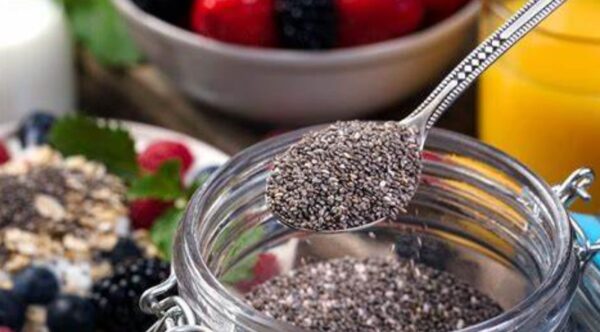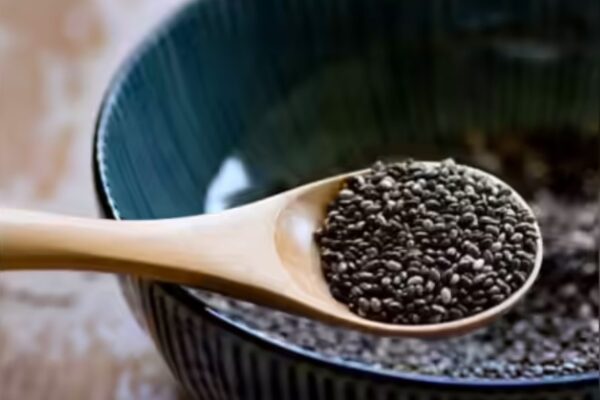Lifestyle
Is it ok to eat chia seeds daily? 5 people who should avoid it

It’s strange how something so tiny can spark such big conversations.
Chia seeds—those little black and white dots—have quietly made their way into smoothies, puddings, and health bowls across the world.
Touted as a “superfood,” they’ve earned a reputation for boosting energy, aiding digestion, and even helping with weight loss.
But here’s a pause-worthy moment: is eating them daily really as harmless as it sounds?
While they do carry a lot of health potential, blindly consuming chia seeds every day might not be the right choice for everyone.
Let’s look deeper—what science says, what popular belief claims, and who should be extra careful
1. The good news first: Chia seeds are a nutrient powerhouse
Chia seeds are packed with fibre, protein, omega-3 fatty acids, calcium, magnesium, and antioxidants. They’re low in calories and rich in good fats. Sounds like a dream, right?
Yes, all that is true. In fact, just 2 tablespoons of chia seeds offer around 10 grams of fibre—nearly 35% of the daily recommended intake. That fibre can support digestion, reduce cholesterol, and help feel fuller for longer. The omega-3s, especially ALA (alpha-linolenic acid), have been linked to reduced inflammation and better heart health.
But there’s a catch—more isn’t always better, especially when consumed every single day.
2. Daily intake can be a blessing—But only in the right amount
Health blogs often say, “Add chia seeds to meals every day for long-term health benefits.”
While small, daily portions (1 to 2 tablespoons) can be beneficial, going overboard can lead to digestive issues. Due to their high soluble fibre content, chia seeds absorb up to 10–12 times their weight in water. Without enough hydration, this can cause bloating, gas, or even constipation.
Soaking chia seeds before eating or drinking plenty of water with them makes a big difference. Unsoaked chia seeds can swell in the throat or stomach, leading to discomfort, especially if the gut is already sensitive.
3. Blood thinner alert: Not for those on certain medications
Omega-3s in chia seeds are good for the heart and reduce clotting risks.
That’s exactly the concern. For individuals already on blood thinners like warfarin or aspirin, or those with bleeding disorders, daily intake of omega-3-rich foods like chia seeds can further slow clotting. This could raise the risk of bruising or bleeding.
It’s not about cutting them out entirely—it’s about moderation and checking with a doctor before turning chia seeds into a daily habit.
4. Not friendly for people with low blood pressure
Chia seeds may help manage high blood pressure.
Some studies do suggest that chia seeds, thanks to their omega-3s and potassium, may support blood pressure control. But for individuals with already low blood pressure, this can be risky. Regular consumption might push pressure levels further down, leading to dizziness or fatigue.
A healthy seed for one might not be so great for another. Daily use should always consider personal blood pressure levels.
5. Can interfere with blood sugar medications
Chia seeds help regulate blood sugar and may benefit people with diabetes.
While chia seeds do have a low glycemic index and slow down sugar absorption, they can unexpectedly amplify the effects of blood sugar-lowering medications. For those managing diabetes, this could lead to hypoglycemia (low blood sugar), especially if doses are not adjusted.
Again, it’s not about completely cutting them out—it’s about mindful eating, especially when medicines are already doing the same job.
Either way, it is best to consult a doc while having chia seeds, and in what quantity.










